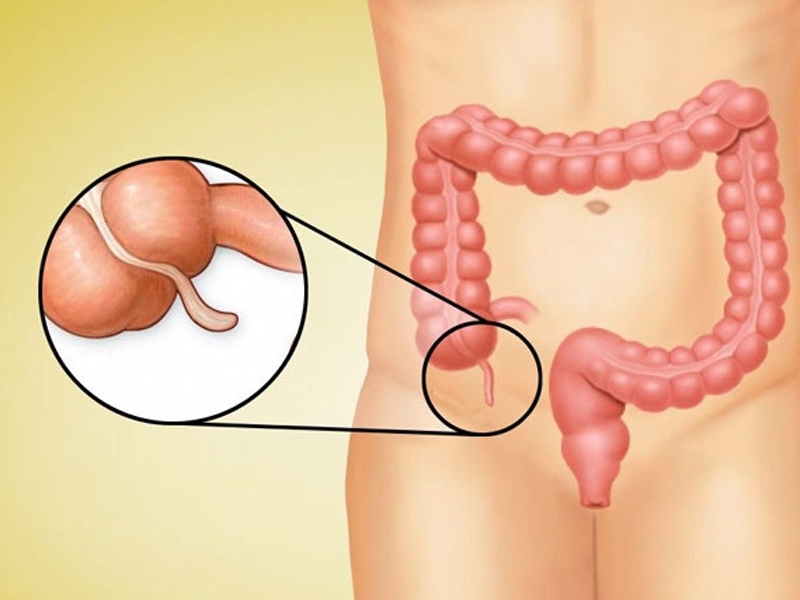Treatment
Appendix

Appendicitis is an inflammation of the appendix, a 3 1/2-inch-long tube of tissue that
extends from the large intestine. One study suggests that the appendix may have some
role in gut immunity, but nothing is definite. One thing we do know: We can live without
it, without apparent consequences.
Appendicitis is a medical emergency that almost always requires prompt surgery to remove
the appendix. Left untreated, an inflamed appendix will eventually burst, or perforate,
spilling infectious materials into the abdominal cavity. This can lead to peritonitis, a
serious inflammation of the abdominal cavity's lining (the peritoneum) that can be fatal
unless it is treated quickly with strong antibiotics.
Sometimes a pus-filled abscess (infection that is walled off from the rest of the body) forms outside the inflamed appendix. Scar tissue then "walls off" the appendix from the rest of the abdomen, preventing infection from spreading. An abscessed appendix can perforate or explode and cause peritonitis. For this reason, almost all cases of appendicitis are treated as emergencies, requiring surgery.
Appendicitis occurs when the appendix becomes blocked, often by stool, a foreign body, or cancer. Blockage may also occur from infection, since the appendix can swell in response to any infection in the body.
What Are the Symptoms of Appendicitis?
The classic symptoms of appendicitis include:
- Dull pain near the navel or the upper abdomen that becomes sharp as it moves to the lower right abdomen. This is usually the first sign.
- Loss of appetite
- Nausea and/or vomiting soon after abdominal pain begins
- Abdominal swelling
- Fever of 99-102 degrees Fahrenheit
- Inability to pass gas
Almost half the time, other symptoms of appendicitis appear, including:
- Dull or sharp pain anywhere in the upper or lower abdomen, back, or rectum
- Painful urination and difficulty passing urine
- Vomiting that precedes the abdominal pain
- Severe cramps
- Constipation or diarrhea with gas
